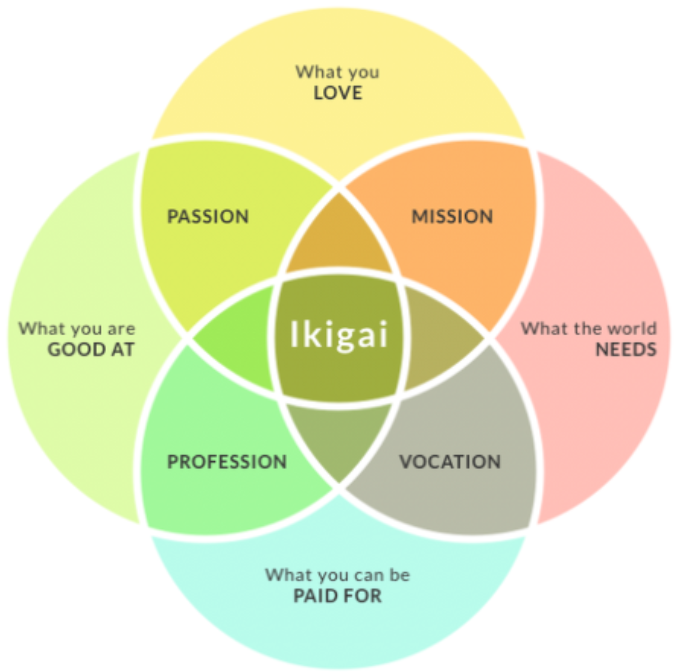Thinking about a career change? You’re not alone. More than 20 million people quit their jobs in the second half of 2021, during what is now being called “the great resignation.”
Whether you’re just daydreaming about making a change or have had one forced upon you through layoffs or downsizing, now is as good a time as any to be really thoughtful about what you want to do next.
As TED Speaker and career expert Michelle Enjoli said, “2022 is shaping up to be a great year for a career change due to the large range of options that now exist to educate yourself in a new area, network globally with others, rebrand yourself, and position yourself as a subject matter expert.”
The career dilemma
Whether you’ve been in your current job for two years or 20 years, it’s not uncommon to have times when you desire a change of scenery. Maybe you enjoy what you do but aren’t in love with the company you work for, or perhaps you’re thinking about changing industries altogether.
In our Passport to Success course (which Alpha Kappa Psi members can find in your MyAKPsi portal) Mike Callahan, Managing Partner at Callahan & Rose Consulting, calls this a “career dilemma,” and says it’s very common. Your career dilemma is made up of the doubts and questions you have about the direction of your career or education.
When faced with a career dilemma, Mike says there are a few important questions to consider, like:
- What kind of industry interests you?
- How about the size of the company?
- Have you ever considered working for the government or in the non-profit sector?
- What about different employment modes? (e.g., regular employee, freelance work, temporary contract work, etc.)
Answering questions like these can help you start to see how far off your current job actually is from your ideal scenario, and what kind of change you might want to consider.
Discover your passion
The key to unlocking what you truly want to do in your career is knowing yourself and what you’re passionate about. What do you love to do? What are your hobbies or the things you’re excited to get up in the morning to do?
To be clear, not everything you love to do will translate directly into a job (most of us can’t make a living watching Netflix). The trick is to find some way to align your passions with an actual realistic career — like turning your love of TV into a job in media.
There’s a Japanese concept called “ikigai,” which refers to something that gives a person a sense of purpose, or reason for living. Your ikigai resides where your passions and talents intersect with something the world needs and something you can get paid to do.
Does your current job come close to representing your ikigai? If not, maybe it is time to explore other potential opportunities, to see if there’s something out there that would be a better fit for you.
Spend some time thinking about where you are in your career exploration journey and what areas of exploring you need to spend more time focusing on.
To get more clarity, Mike recommends:
- Meditation
- Personal reflection
- Networking
- Informational Interviews
- Volunteering
- Self-assessments (like the Birkman Method Assessment)
Think like an entrepreneur
A great way to find a more rewarding career path is to challenge your current way of thinking so that it is more entrepreneurial. You want to pursue opportunities that align with your values and passions, but are also needed in the marketplace.
As you explore, instead of choosing from a list of potential opportunities that you’re currently aware of, start with a much broader approach. Your next job could be one that you’re not even familiar with today — or one that doesn’t even exist yet.
Some people are now taking their careers into their own hands by doing what’s called “job crafting.” Jennie Yang, VP of Talent and Culture at 15Five, job crafted a role in her organization after seeing a need in the company that aligned with an area she was personally passionate about and had experience with.
Maybe there’s a need or gap in your organization that needs to be filled, and you have the interest and skills to do it? Raising your hand can be a great way to create your own opportunities for professional growth.
Consider your ideal employee experience
Finding purpose and engagement in your work is essential to a fulfilling employee experience. All the interactions you have with your employer, from the day you’re hired to the day you leave, are part of your employee experience.
This includes tangible things like the tools or technologies you use, and the intangible, like how you feel about the company’s purpose or the relationship between you and your manager. All of these things impact your engagement, how well you perform at your job, and your professional development.
Think about what a great employee experience might look like for you, and make sure your current or future workplace aligns with that. For example, if work-life balance is important to you but your current boss regularly calls you during dinner or on the weekends, that might not be the best fit for you.
Decide what you value as an employee and make sure any career changes you make won’t compromise those values.
Test the waters
There’s no need to dive headfirst into a career change. Take your time and learn all you can about what’s out there for you.
If there are opportunities to job shadow or do informational interviews about career paths or industries you’re interested in, do them! Find professionals who are doing what you want to be doing and pick their brains.
You can even find a mentor to help you on your journey. A good mentor is someone who wants to see you succeed in your career and has been where you are. They can be a sounding board or a role model for where you want to go professionally.
Another way you could potentially dip your toe into different career paths is by doing temporary or contract work. You could try out some different short-term gigs or start a side hustle as a freelancer. This gives you the freedom to try different things without the long-term commitment of a full-time job.
Wherever your career explorations take you and whatever changes you ultimately decide to make, be prepared for and open to change. The more open flexible you can be, the more possibility is out there — and the closer you are to your dream career.
Hear real career transition stories on the Business Edge podcast
Listen to the Business Edge Podcast for more useful tips and lessons learned from two Alpha Kappa Psi alumni who have made their own career transitions.
Hear the Business Edge career transitions episode >


